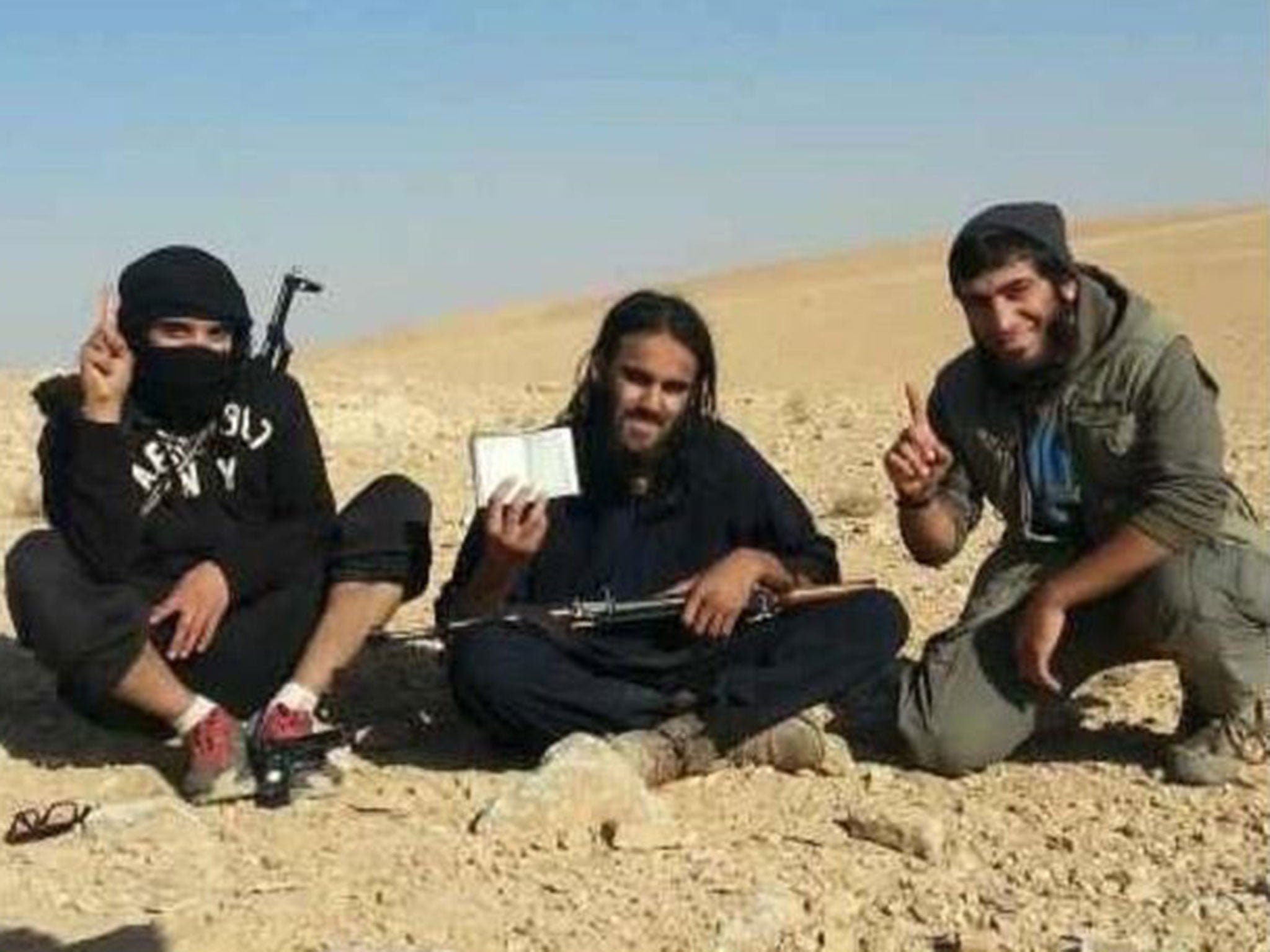Isis jihadi who recruited 'hundreds' of UK fighters 'killed in Syria'
Raphael Hostey's death described as the 'end of an era'

Your support helps us to tell the story
From reproductive rights to climate change to Big Tech, The Independent is on the ground when the story is developing. Whether it's investigating the financials of Elon Musk's pro-Trump PAC or producing our latest documentary, 'The A Word', which shines a light on the American women fighting for reproductive rights, we know how important it is to parse out the facts from the messaging.
At such a critical moment in US history, we need reporters on the ground. Your donation allows us to keep sending journalists to speak to both sides of the story.
The Independent is trusted by Americans across the entire political spectrum. And unlike many other quality news outlets, we choose not to lock Americans out of our reporting and analysis with paywalls. We believe quality journalism should be available to everyone, paid for by those who can afford it.
Your support makes all the difference.A senior British jihadi who boasted of recruiting hundreds of Britons for Isis has reportedly been killed in Syria.
Raphael Hostey, also known as Abu Qaqa al-Britani, left Manchester to join Isis in 2013.
The 23-year-old became a key recruiter of British fighters and jihadi brides for the terror group and was also heavily involved in its propaganda.
Amarnath Amarasingam, a post-doctoral researcher at Dalhousie University in Halifax, Nova Scotia, told The Independent he had been informed of the death by several fighters in the region.
Mr Amarasingam said he understood he was killed in a drone strike, adding that he was trying to confirm the death of at least three other British jihadis.
Hostey was heavily involved in Isis propaganda and is believed to have been instrumental in attracting Britons to Syria.
Shiraz Maher, a war studies lecturer from King's College London, said the death of the British jihadi was "huge".
He said Hostey was the last survivor of a hugely important group of Isis fighters from Manchester and Portsmouth who were responsible for the flow of Britons to Isis.
Hostey was also heavily involved in Isis propaganda, he added, and probably helped produce the group's recruitment magazine Dabiq.
"The death of Abu Qaqa represents the end of another era of British fascism," he said.
Hostey used several methods in his recruitment attempts, including providing theological justification for Isis, appealing to video gamers and flirting with potential female recruits, according to the Counter Extremism Project.
He had previously boasted of smuggling "hundreds" of people into Syria and also posted several tweets inciting and glorifying acts of violence and beheading.
Other posts cheered on those responsible for the attacks on the Charlie Hebdo offices in January 2015, which killed 12 people.
Originally from Moss Side, Manchester, Hostey studied graphic design at John Moores University in Liverpool.
He left for Syria in September 2013 with two friends who also studied at John Moores University, Mohammed Javeed and Khalil Raoufi, both 20. Javeed and Raoufi are thought to have been killed fighting in Syria.
At least 700 people from the UK have travelled to support or fight for jihadist groups in Iraq and Syria, according to police.
Around half have since returned and are being monitored by intelligence services.
The Foreign Office said they were unable to confirm reports of Hostey's death.
Isis recently suffered one of its biggest military defeats in Palmyra, which was seized by regime forces backed by Russian air strikes.
Last month, US President Barack Obama said Isis fighters were coming to "realise their cause is lost".
Mr Obama said the size of the group's army was at its lowest level for two years and that it had lost 40 per cent of its territory in Iraq and 10 per cent in Syria.
Join our commenting forum
Join thought-provoking conversations, follow other Independent readers and see their replies
Comments